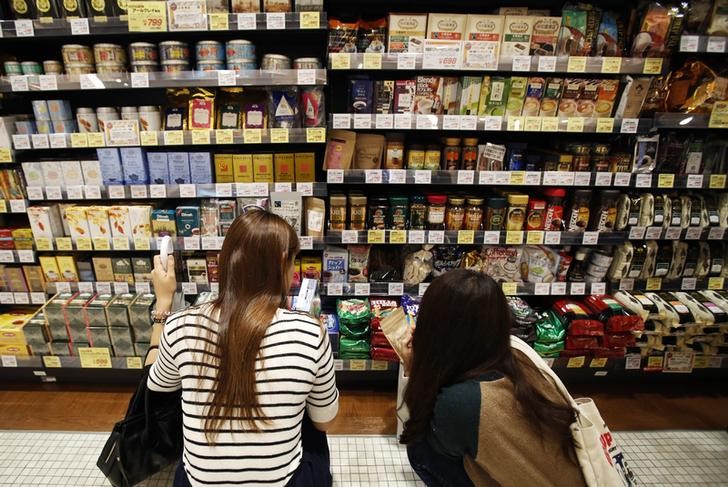By Tetsushi Kajimoto and Stanley White
TOKYO (Reuters) - Japan's annual core consumer inflation slowed for a third straight month in October due to falling oil prices, highlighting the economic gloom facing Premier Shinzo Abe as he campaigns for a new mandate to implement his stalled recovery plan.
"Inflation could continue to slow because oil prices are falling," said Hidenobu Tokuda, senior economist at Mizuho Research Institute. "Other data show the economy is recovering, but this is not really because of Abe's policies."
Analysts remain sceptical of the Bank of Japan's view that inflation will accelerate to 2 percent in the fiscal year from April 2015 on a stronger job market and the economy moving closer to its potential output.
One reason for this scepticism is the belief among many economists that the real reason inflation picked up earlier this year was high oil prices and a weak yen.
Oil prices have since reversed course and are now languishing at a 4 1/2-year low, and economists say this could wipe out the inflationary impact of a weak yen and slow consumer price gains even more.
Finance Minister Taro Aso shrugged off these concerns on Friday, telling reporters after the data was published that Japan is escaping deflation because of rising prices.
The core consumer price index (CPI), which excludes volatile fresh food but includes oil products, rose 2.9 percent year-on-year in October. That matched economists' median estimate and was slower than a 3.0 percent annual gain in the prior month.
Excluding the effects of April's tax hike, inflation was estimated at 0.9 percent, less than halfway to meeting the BOJ's 2 percent goal, a level investors see as impossible to reach next year.Household spending fell 4.0 percent in the year to October, down for seven months in a row, slower than a 5.6 percent annual decline in the previous month.
Factory output unexpectedly rose in October, suggesting companies have reduced inventories of unsold goods built up after April's sales tax hike triggered a recession.
Abe could draw some comfort from the manufacturing and household spending data, but there are still doubts that his reflationary "Abenomics" policy has done enough for the economy ahead of a Dec. 14 election.
Japan's jobless rate fell to 3.5 percent from 3.6 percent in September, while the jobs-to-applicants ratio rose to 1.10, matching levels not seen in 22 years.

(Editing by Eric Meijer)